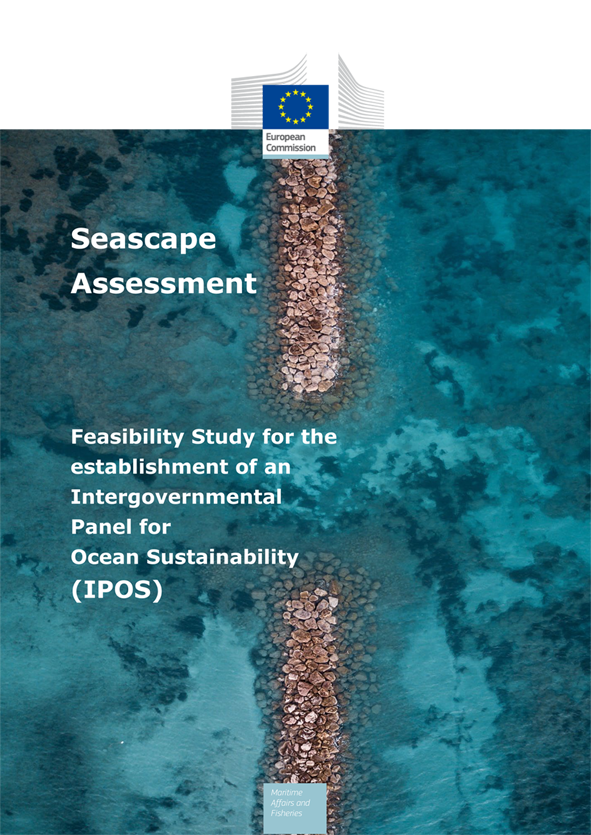The EU recognizes the urgency to implement transformative action towards more sustainable management of the ocean in line with SDG 14 ‘Life Below Water’ of the 2030 Agenda for Sustainable Development. A key enabling factor to achieve this is missing in the ocean arena despite the recent advances in reshaping ocean governance through the UN High Seas Treaty (BBNJ) and the Global Biodiversity Framework under the Convention on Biological Diversity. Ocean science, data and information is not being transmitted to decision-makers effectively enough or regularly enough in a format that optimally serves evidence-based policies, in contrast with the more effective science-policy processes for climate and biodiversity.
The European Commission (DG MARE) requested Seascape assessment study to carry out an analysis which maps the past five years (2018-2023) of global ocean information and scenarios produced by existing organisations and processes. In order to achieve this objective, a comprehensive template for reviewing assessments and processes was created based on best practices. Thirty-five global ocean-related publications and assessments were reviewed against this template. In combination, a questionnaire was created in order to obtain deeper insights from 21 policy makers and scientists working at the science-policy interface. This landscape assessment (dubbed as the Seascape Assessment) and the presentation of results at a series of co-participatory workshops showed that overall there is not yet a continuous process that provides complete and coherent evidence to inform ocean sustainability decisions. Instead there are pieces of ocean knowledge distributed across multiple assessments, leaving decision-makers without a clear compass with which to navigate the continuously evolving challenges we are facing. While this report focuses on ocean issues, the respective conclusions should not be misunderstood to exclude similar shortcomings for terrestrial and freshwater systems. Such shortcomings do exist and should be addressed by similar initiatives.
Referencing this report: Brodie Rudolph, T. and Jacquemont, J. (2023). Seascape Assessment: A Feasibility Study for the establishment of an Intergovernmental Panel for Ocean Sustainability (IPOS). Publication Office of the European Union, 2023, doi: 10.2771/903406.

